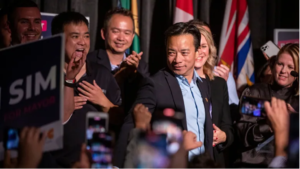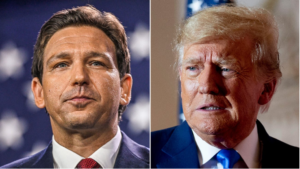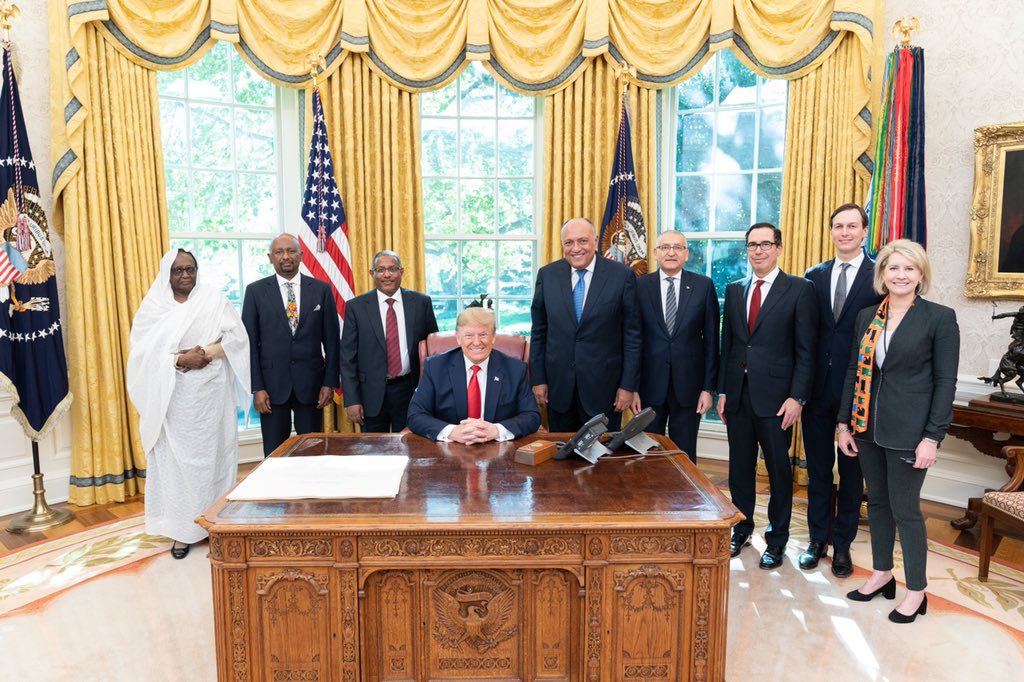
(From the Twitter feed of Donald Trump)
The White House announced that on November 6, US President Donald Trump had held diplomatic consultations with foreign ministers and other senior officials from Sudan, Egypt, and Ethiopia. The meeting was reportedly mainly focused on resolving the dispute over a new dam Ethiopia is building on the Nile River. In Ethiopia, Africa’s largest hydroelectric power plant is about to be completed: the Grand Ethiopian Renaissance Dam on the Nile is a project initiated by the Ethiopian government to transform Ethiopia’s economy and resolve its energy crisis. While the hydroelectric power plant is a project that could help lift millions of Ethiopians from poverty, further downstream in Egypt, where over 90 million people live on the shores of the river Nile, the population is scared that this dam is a fundamental threat to their way of life. The dam could divert the Nile to fill its massive reservoir, meaning that millions of Egyptians and Sudanese could face a catastrophic water scarcity crisis. President Trump has vowed to help Egypt, Sudan, and Ethiopia set their differences aside in looking for an outcome “that is diplomatic and takes into consideration the needs of all countries”.
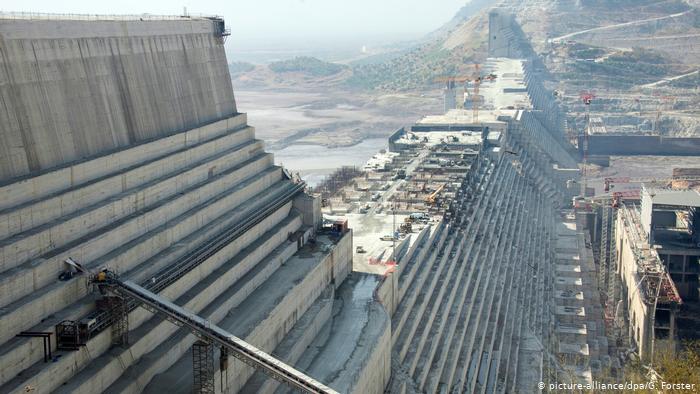
Image Courtesy of Deutsche Welle
Why is Washington suddenly so interested in resolving geopolitical issues in East Africa? In his statement for Reuters, Cameron Hudson, a former State Department official said: “the Washington meetings came out of the blue since the United States had not been involved in the Nile water issue so far”. There are three possible factors that galvanized the Trump administration and encouraged them to actively participate in the mediation of the dispute over the Grand Ethiopian Renaissance Dam. It is a decision of his administration to defend the strategic interests of their indispensable Middle-Eastern ally, Egypt, the decision to push back against Chinese influence in Africa, and the inference by Trump’s campaign staff that solving this diplomatic crisis could help improve his image as a “dealmaker”. These three factors have strongly influenced the current administration’s decision to become an important actor in East Africa.
The United States and Egypt have long shared a strong partnership based on mutual interest in Middle East peace and the War on Terror. The United States has designated Egypt as one of the most important allies, alongside Israel, and has provided Egypt with over $70 billion in military aid and economic assistance in the last four decades. The Trump administration perhaps got involved in a dispute because it identified that the project could affect the flow of the world’s longest river and thus significantly harm the economy of their ally. Millions of farmers in Egypt depend on the Nile for agricultural and domestic water use. President Trump had to respond positively to Egyptian President Abdel Fattah Al Sisi’s request on the sidelines of the UN General Assembly to get involved in the dispute if he wanted to preserve a strong relationship with Egypt.
Washington has long been concerned about China’s “no strings attached” investment projects in Africa. Sudan and, in particular, Ethiopia have become strategic destinations of Chinese infrastructure projects. While some experts argue that Chinese projects have been extremely beneficial for Sudan and Ethiopia, Washington repeatedly states that these Chinese-backed projects present a real economic and political threat to the sovereignty of East African countries. During the China-Africa Water Forum in August, the Chinese officials noted the importance of cooperation between China and African countries in the area of water infrastructure, dams in particular. China has recognized the Grand Ethiopian Renaissance Dam as a crucial project under the Beijing Action Plan (2019-21) and has offered a $1.8 billion loan to the Ethiopian government to help fund it. President Trump has identified China as an antagonist and rival of the United States and his decision to increase the U.S. presence in East Africa could be perceived as an act to finally stop Chinese influence in Africa.
The current U.S. president has repeatedly called himself “a great dealmaker” and has emphasized a new, aggressive approach by the United States in foreign policy in the last elections. Lately, it seems as though the Trump administration has been doing its best to avoid making deals. There has not been any progress with resolving the issue of the nuclear programs of Iran and North Korea, the Venezuelan humanitarian crisis is still ongoing, and the Israeli-Palestinian conflict has arguably worsened. The leaders of Sudan, Ethiopia, and Egypt have agreed with the United States to set January 15 as a deadline to draft a diplomatic agreement with regards to the dam’s construction. Any breakthrough in the negotiations would help Trump to boost his image with the electorate at home as this “great dealmaker”. A dispute with three regional powers is perhaps much easier to solve compared to finding a solution to the Israeli-Palestinian crisis that has been ongoing for decades.
The revival of the role of a leading geopolitical superpower in East Africa will prove as an extremely difficult task for the State Department. Namely, the U.S. has not had a clear strategy for its relations with African states ever since January 1981 when Ronald Reagan decided that the Carter administration had largely failed in Africa and has advocated for “isolationism of the U.S. in African political affairs”. The emerging consensus in diplomatic circles is that the U.S. is falling behind in Africa, especially behind Russia and China, who have actively participated in the process of incredible economic growth and digital revolution on the continent. Africa is transforming rapidly and the architecture of the United States’ engagement is not adapting fast enough to this dynamism and to the evolving aspirations of African countries. What is it that the U.S. can offer Ethiopia to prevent them from building this dam and creating a water scarcity crisis in the region that could potentially lead to a violent conflict similar to the one in Darfur? As it stands right now, President Trump will truly have to show surreal “deal-making skills” if he wants to convince the Ethiopians in less than a month to give up their plans for completing their most important economic project in decades.
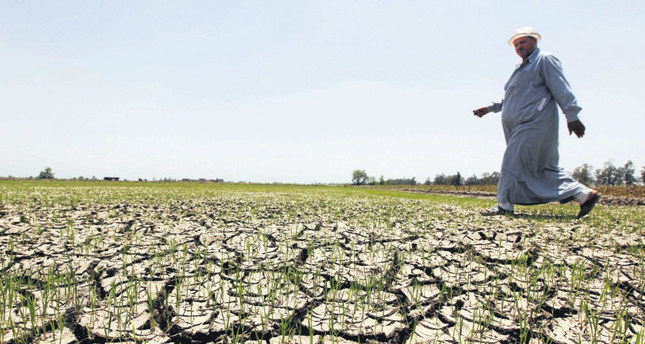
Image courtesy of African Leadership Magazine
Ervin Smajič

